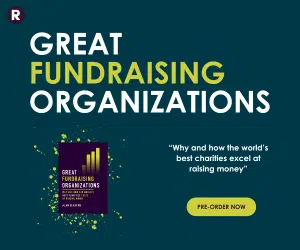Big Data is a pipe dream
I’ve been investigating “Big Data” of late. Specifically, how this emerging field can offer opportunities to charities to make their fundraising more effective. Data means insights, and insights mean better ROI.
It’s been no easy task, since the first problem is that nobody seems to agree on what “Big Data” actually means.
A good catch-all definition that I got from Jon Beyer at the ELCA charity in America is that Big Data is the analysis and insight process associated with multiple data sets that are “difficult to store, share and action”. It will likely include both structured and unstructured data.
Advertisement
In other words, it’s difficult.
Whilst I am confident that Big Data projects are coming, I think I have been over-optimistic about when it’s going to happen. After doing much of the conference circuit this year, I am hearing very little about how UK charities might be planning or even thinking about Big Data.
Which is a shame, because I think the opportunities afforded by using large and diverse data sets to drive insight and so drive strategy are enormous and the first-to-market advantages could be significant.
I attended a great session at the International Fundraising Congress yesterday in Amsterdam, where Bob Francis (NSPCC) and Marcus Missen (WaterAid) enthusiastically shared their passion for using data and insights to drive strategy.
An example given was for CRUK. They analysed their data and extracted hypotheses to profile of their supporters. They wanted to know what made them
give.
Discoveries: their “Young & Fun” profile cared little for altruistic messages but loved doing stuff that was fun and exciting and shareable. Another group volunteered largely because of the social aspect. They got to make friends.
CRUK then changed their email messaging to make it personalised for these groups. Depending on the segment, people would see different emails, customised with content, layout and images that spoke to their motivations.
The results? The email open rate went from 46% to 49%. No story there. But the click through rate went from 21% to 82% (!). Volunteering results increased
300%. This was only possible because of the insights gained from analysis of their data.
Then Bob asked the audience of 40 or so people a question: who joins up their online and offline data? 2 people raised their hands. I was shocked and I think he was too.
And that was when the penny dropped for me. Data is a bigger challenge for charities than I thought. It must be. For me, and I imagine most people in the room, linking online and offline data is a must-have. A no-brainer. And no discussion of Big Data is relevant if this crucial step hasn’t been taken. So why isn’t it happening?
I’m guessing because it takes investment. In the right people, the right partners and the right systems. It requires a senior management culture that gets the value of it. But it’s got to be done.
In digital, we are so used to using data to drive online strategy and actions partly because we can get that data quickly and relatively cheaply. We test and learn. It’s embedded.
Integrating this with offline data is more difficult, but until this step is taken, any talk of Big Data is just a pipe dream.
Jeremy is a Director of digital agency Chameleon who specialises in helping NfPs use digital to drive results. For web-CRM integration advice, or any other digital consultancy he can be contacted at Je**********@ch*******.eu.



